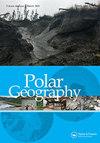可持续发展示范北极理事会
IF 1.6
Q3 GEOGRAPHY, PHYSICAL
引用次数: 0
摘要
本文认为,模拟北极理事会(MAC)在北极可持续发展中发挥着重要作用。与更著名的模拟联合国(MUN)一样,模拟联合国是一种模拟教学法,是一种体验式学习过程,中学生或大学生通过想象自己是外交官,试图通过谈判找到解决这些问题的共同方法,来理解可持续发展等复杂问题的本质和重要性。在展示了外交模拟的教育价值之后,我介绍了MUN作为最受欢迎的形式,并评估了一个旨在促进青年在联合国可持续发展目标方面的知识和行动的全球MUN项目的案例研究。这个案例研究,结合MAC本身的结构、主题和教育价值,强烈表明MAC可以用来促进北极和非北极青年在北极可持续发展方面的知识和行动,包括理解可持续发展的概念是如何在总体上和在北极的背景下受到质疑的。结合这一分析和专业经验,我为教育工作者提供了关于有效设计和使用MAC和其他模拟教学法的实用建议。本文章由计算机程序翻译,如有差异,请以英文原文为准。
Model Arctic Council for sustainable development
ABSTRACT I argue that Model Arctic Council (MAC) has a role to play in Arctic sustainable development. Like the better-known Model United Nations (MUN), MAC is a form of simulation pedagogy, an experiential learning process in which secondary-school pupils or university students comprehend the nature and importance of complex issues such as sustainable development by imagining themselves as diplomats trying to negotiate a common approach to them. After demonstrating the educational value of diplomatic simulations in general, I introduce MUN as its most popular form, and I assess a case-study of a global MUN program designed to advance knowledge and action among youth in respect of the UN Sustainable Development Goals. This case-study, taken together with the structure, subject-matter and educational value of MAC itself, strongly suggests that MAC can be used to advance knowledge and action among both Arctic and non-Arctic youth in respect of Arctic sustainable development, including understanding how the notion of sustainable development is both contested in general and contextualized in the Arctic. Combining this analysis with professional experience, I offer practical recommendations to educators about the effective design and use of MAC and other simulation pedagogies.
求助全文
通过发布文献求助,成功后即可免费获取论文全文。
去求助
来源期刊

Polar Geography
GEOGRAPHY, PHYSICAL-
CiteScore
5.30
自引率
0.00%
发文量
13
期刊介绍:
Polar Geographyis a quarterly publication that offers a venue for scholarly research on the physical and human aspects of the Polar Regions. The journal seeks to address the component interplay of the natural systems, the complex historical, political, economic, cultural, diplomatic, and security issues, and the interchange amongst them. As such, the journal welcomes comparative approaches, critical scholarship, and alternative and disparate perspectives from around the globe. The journal offers scientists a venue for publishing longer papers such as might result from distillation of a thesis, or review papers that place in global context results from coordinated national and international efforts currently underway in both Polar Regions.
 求助内容:
求助内容: 应助结果提醒方式:
应助结果提醒方式:


